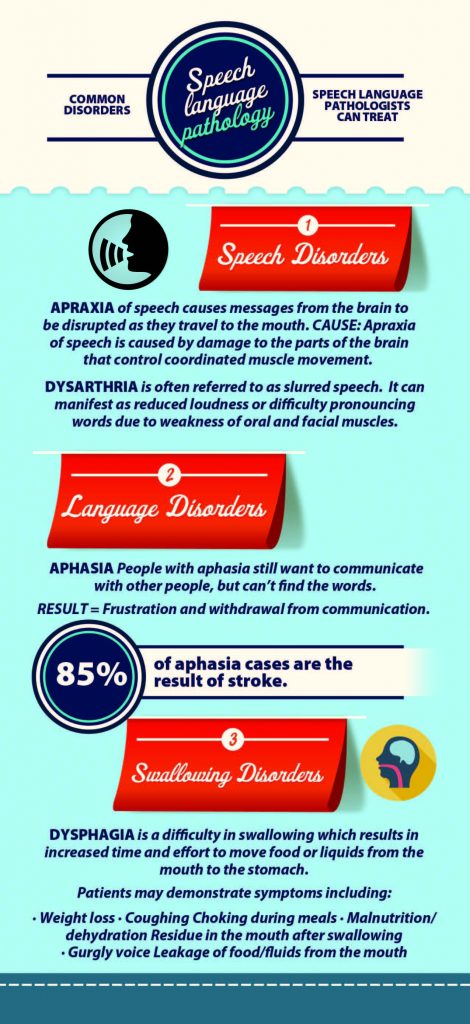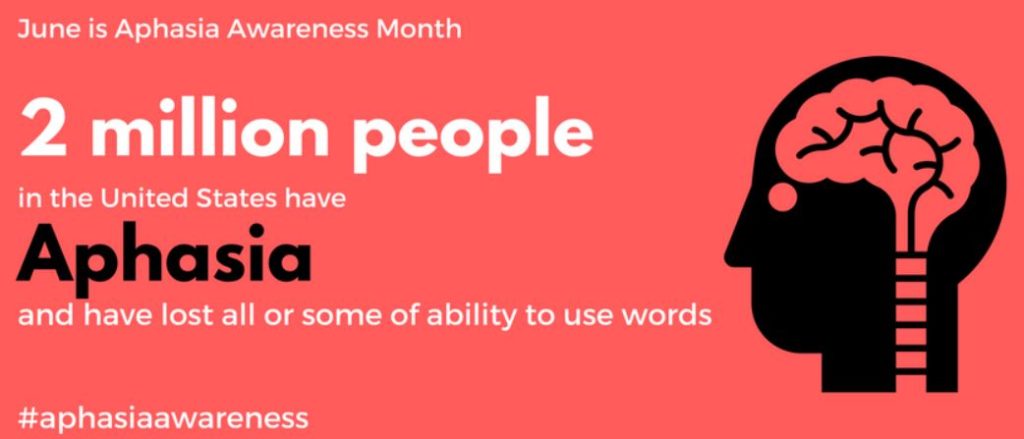In recognition of National Aphasia Awareness Month, Therapy Center would like to share important information regarding aphasia and communicating with those impacted by aphasia.
WHAT IS APHASIA?
Aphasia is an acquired communication disorder that impairs a person’s ability to process language, but does not affect intelligence. It impairs the ability to speak and understand others, and in most cases, people with aphasia experience difficulty reading and writing. The diagnosis of aphasia does NOT imply a person has a mental illness or impairment in intelligence.
We recognize that not all circumstances of aphasia are alike. According to the National Aphasia Association, “Aphasia can be so severe as to make communication with the patient almost impossible, or it can be very mild. It may affect mainly a single aspect of language use, such as the ability to retrieve the names of objects, or the ability to put words together into sentences, or the ability to read.”
WHAT CAUSES APHASIA?
Aphasia affects about two million Americans and is more common than Parkinson’s Disease, cerebral palsy or muscular dystrophy. In fact, nearly 180,000 Americans acquire the disorder each year.
The most common cause of aphasia is stroke, but it can also result from head injury, brain tumors, or other neurological cases.
HOW IS IT DIAGNOSED?
Aphasia is usually first recognized by the physician who treats the person for his or her brain injury. Most individuals will undergo a MRI or CT scan to confirm the presence of a brain injury and to identify its precise location.
A speech-language pathologist (SLP) can also evaluate the individual with a variety tools to determine the type and severity of aphasia. Aside from these clinical tests, some of the symptoms includes sudden difficulty speaking, trouble comprehending speech, and difficulty recalling words.
WHAT ARE THE TREATMENTS?
Various forms of treatments are available for those suffering from aphasia depending on the cause. Common treatments include surgery (typically for tumors located on the brain) and sessions with a speech-language pathologist (for the vast majority of aphasia cases).
When sessions with a speech-language pathologist are recommended, the therapist will meet regularly with the person to increase his or her ability to speak and communicate and will also teach the person ways to communicate that don’t involve speech, helping the person compensate for language difficulties.
IF SOMEONE YOU KNOW HAS BEEN DIAGNOSED
In honor of National Aphasia Awareness Month, Therapy Center would like to share helpful tips when communicating with someone diagnosed with aphasia:
- Get the person’s attention before you start speaking.
- Maintain eye contact and watch the person’s body language and use of gesture.
- Minimize or eliminate background noise (TV, radio, other people).
- Keep your voice at a normal level. Do not speak loudly unless the person asks you to
- Keep communication simple, but adult. Don’t “talk down” to the person with aphasia.
- Simplify your sentence structure and emphasize key words.
- Reduce your rate of speech.
- Give the individual time to speak. Resist the urge to finish sentences or offer words.
- Communicate with drawings, gestures, writing, and facial expressions in addition to speech.
- Encourage the person to use drawings, gestures, and writing.
- Use “yes” and “no” questions rather than open-ended questions.
- Praise all attempts to speak and downplay any errors. Avoid insisting that that each word be produced perfectly.
- Engage in normal activities whenever possible.
- Encourage independence and avoid being overprotective.
To learn more about Therapy Center, our services and career opportunities, visit our website.
To learn more about aphasia, visit the following resources:

